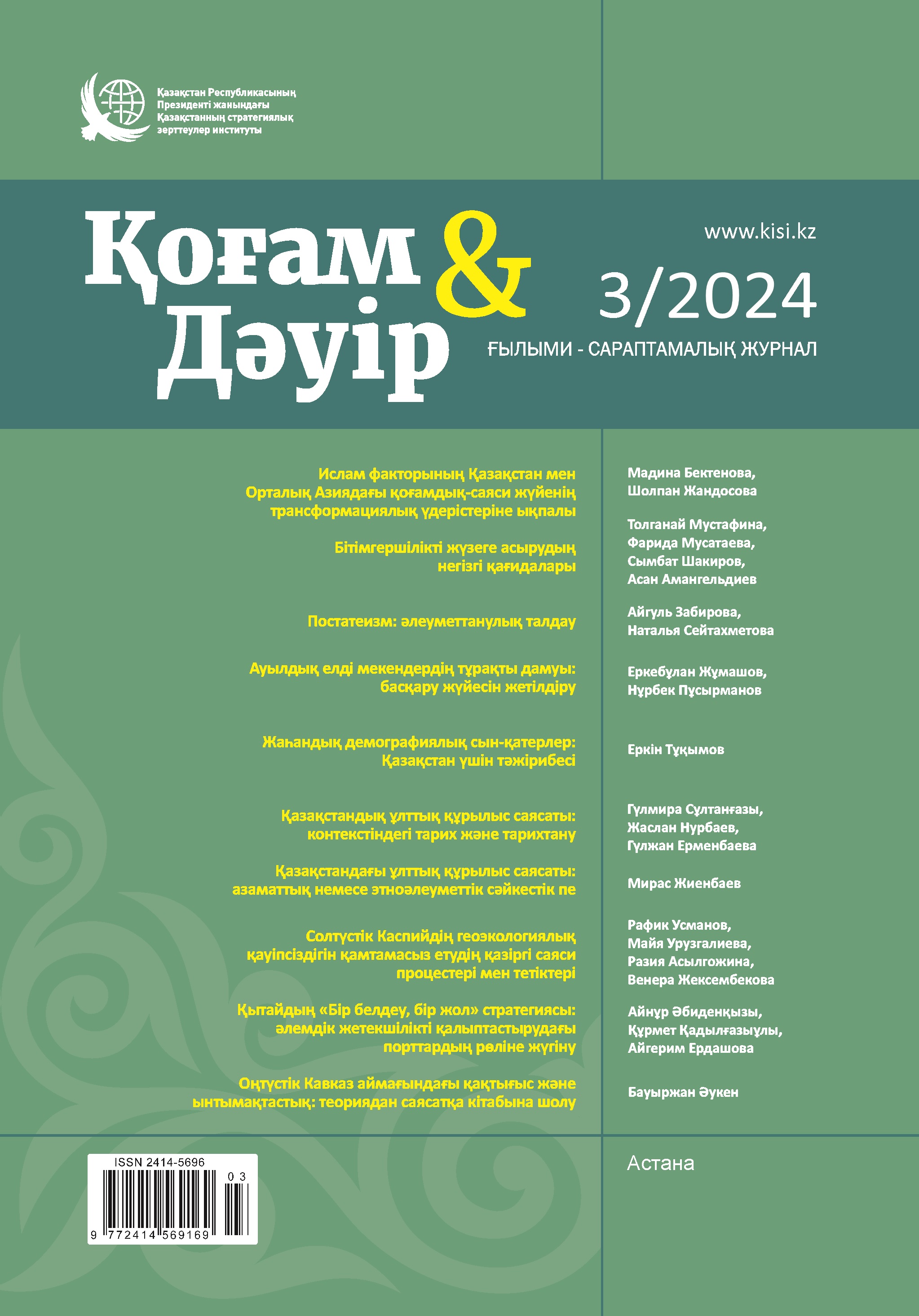Abstract
The collapse of the Soviet system and the attainment of Independence marked a number of issues related to the transformation of political and socio-cultural space. The production of meanings and interpretations of social reality became a substantial part of the post-communist transit. It became necessary to form policies aimed at creating a new Kazakhstani identity. In the USSR, ideology was responsible for this niche, but Kazakhstan's political system declared the principle of ideological pluralism. Having abandoned such a powerful tool for constructing socio-political and other entities, the new government proposed another motivating thesis: "economy first, then politics".
However, ideological diversity and the dominance of economic messages proved incapable of performing the functions of consolidation and, moreover, of creating a picture of the future. Society found itself in a state of an unaccustomed for it "idea-less reality". Since during the entire Soviet period ideology determined not only political development, but also kept the spheres of culture and private life under total control. This paper will attempt to analyze the instrumental use of history and historicisation in nation-building processes. The main method will be historiographical analysis. This will allow us to identify the regularities of the process of accumulation of knowledge on the issues under study.


